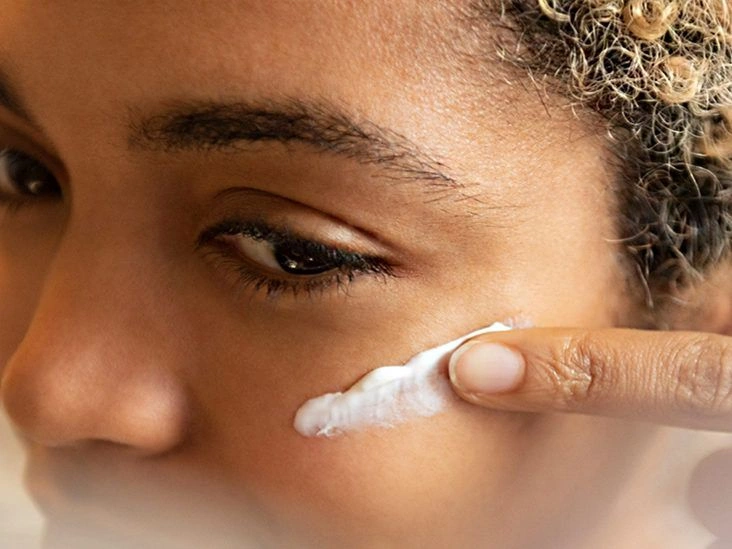Peptides, ingredients found in numerous skin care products, can help calm inflammation, even out skin tone, and diminish the look of wrinkles.
It seems like every day brings a new trendy skin care ingredient that promises to transform your complexion. Some of these are more marketing than medicine, but others genuinely deliver — and peptides are one you’ll want on your radar.
Also referred to as polypeptides, peptides occur naturally in the skin and are also added to many topical formulations — for good reasons.
Peptides are short sequences of amino acids that form parts of proteins essential for skin health.
Specifically, collagen is composed of three polypeptide strands, so supplying peptides can encourage the skin to produce more collagen. Increased collagen often results in firmer, more youthful-looking skin.
Your body produces collagen naturally. Yet with age, collagen synthesis declines, which can make skin appear more lined and less luminous. Before you shop for a new product, here’s what to understand.

Benefits of peptides
The full collagen molecule is actually too large to pass through the skin, which explains why many people ingest collagen-rich bone broth or take collagen supplements.
Peptides, however, are small enough to be absorbed into the skin where the body can utilize them. Adding peptides into your skin care lineup offers several advantages.
Enhanced skin barrier
The skin barrier is the body’s defense against bacteria, UV radiation, pollution, and other environmental stressors. Over-exfoliation, exposure to cigarette smoke and contaminants, or even lack of sleep can compromise this barrier. Peptides support rebuilding a more resilient barrier.
Fewer wrinkles
Collagen helps plump the skin and lips. When skin is firmer and fuller, lines and wrinkles appear less pronounced.
Improved elasticity
Alongside collagen, peptides contribute to elastin fibers, another structural protein. These fibers help skin look firmer and more toned.
Soothes inflammation
Peptides can reduce inflammation, assist in repairing damaged skin, and promote a more even skin tone.
May help control breakouts
Certain peptides have antibacterial properties, meaning they can target bacteria involved in acne formation.
How peptides benefit the skin
Peptides can penetrate the skin’s outer layer, so rather than merely sitting on the surface, they move deeper into the skin. Think of them as messengers for skin cells — they send cues that stimulate the production of collagen and elastin.
Choosing peptide products
With a vast array of peptide-containing products available, it can be tricky to know where to begin. Here’s guidance for shopping peptides, plus some brand-shopping tips:
- Pick the right vehicle. Opt for a format such as a serum or moisturizer that maintains longer contact with your skin. A cleanser, for instance, won’t be as effective because it’s rinsed away.
- Pair with compatible ingredients. Peptides perform well alongside vitamin C, niacinamide, antioxidants, and hyaluronic acid. Combining peptides with an alpha hydroxy acid (AHA) can actually reduce their effectiveness.
- Read the ingredient list. Ideally, peptides should appear nearer the top of the ingredient panel. They may also be identified with prefixes like “palmitoyl.”
Limitations and potential downsides
Peptides are sometimes promoted as miracle treatments, with claims that rival cosmetic injections. This stems from neurotransmitter peptides’ ability to temporarily interfere with chemicals that cause muscle contraction, but they don’t produce results comparable to Botox.
While peptides can be helpful, there are several caveats to keep in mind.
Considerations and drawbacks
- Peptides are often quite costly.
- The evidence base is still evolving. Other actives like AHAs and retinol currently have more robust research supporting anti-aging effects.
- There are numerous peptide varieties, and some may produce no noticeable skin benefit.
- Consult a dermatologist or trusted expert for product recommendations, since “peptide” can be used as a buzzword in marketing.
- On rare occasions, a peptide allergy may occur.
The takeaway
Peptides are short amino acid chains that serve as building blocks for proteins important to skin health, such as collagen and elastin.
Using a peptide-containing serum or moisturizer may result in firmer, more youthful-looking skin and could potentially reduce breakouts. Peptides are generally safe and show promise as a skin care ingredient, but further research is needed to fully understand their effectiveness.

























Leave a Reply
You must be logged in to post a comment.